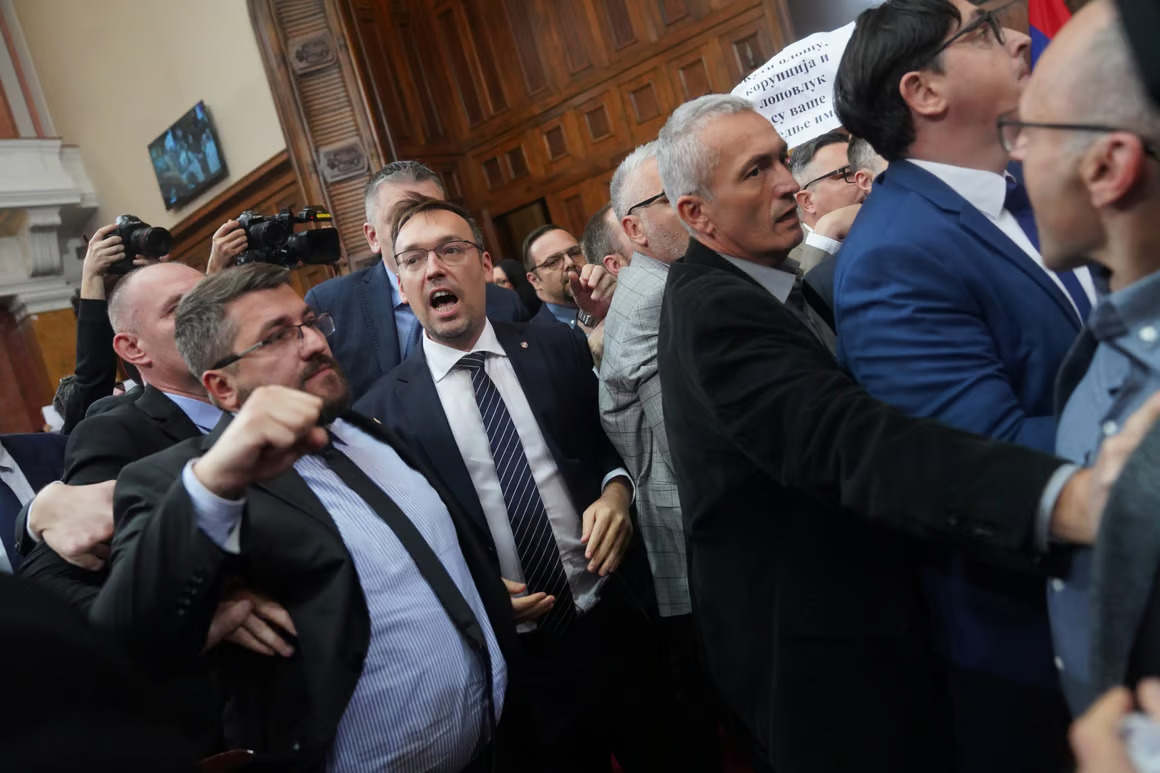A physical altercation erupted in Serbia’s parliament on Monday during Prime Minister Miloš Vučević’s presentation of the 2025 national budget. Opposition MPs disrupted his speech with whistles and horns, accusing the government of responsibility for the recent Novi Sad railway station roof collapse, which killed 15 people.
They held signs reading “your hands are bloody,” symbolizing their allegations of corruption and negligence in infrastructure projects. The disaster has become a flashpoint, highlighting public distrust in government oversight.
The opposition’s protest turned violent when Radomir Lazović, an MP from the Green–Left Front, approached government ministers with a sticker depicting a bloody handprint. Lazović accused Health Minister Zlatibor Lončar of physically attacking him, sparking a melee among lawmakers. The confrontation quickly escalated, with MPs shouting, pushing, and even throwing water, as security personnel struggled to regain control. Several MPs sustained injuries during the fray.

Violence Erupts in Serbian Parliament Over Novi Sad Roof Collapse Amid Protests and Accountability Demands
Speaker of Parliament Ana Brnabić attempted to restore calm but was unsuccessful. She called for order and urged MPs to return to their seats, lamenting the brawl as a disgrace to the legislative chamber. In an effort to de-escalate the situation, Brnabić cut the parliamentary broadcast audio. This chaotic incident reflects the growing tension in Serbia following the tragic building collapse, which has already led to the resignation of two ministers and the arrests of multiple individuals.
The public outrage surrounding the Novi Sad disaster extends far beyond parliament. Thousands of protesters have marched in the streets, many with hands painted red to symbolize blood, demanding government accountability. Demonstrations have occasionally turned violent, leading to clashes with police. Critics argue that the tragedy is emblematic of broader issues of corruption and mismanagement in Serbian infrastructure development.
President Aleksandar Vučić has denounced the protesters as “thugs” while pledging to hold those responsible for the building collapse accountable. Despite these assurances, the incident has fueled a deepening crisis of public trust in the Serbian government. The combination of parliamentary violence and widespread protests underscores the urgent demand for reform and transparency in the nation’s governance.
